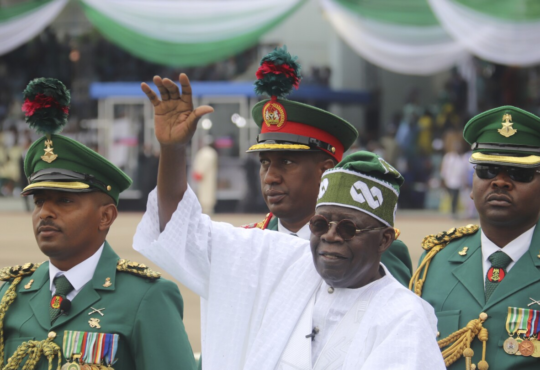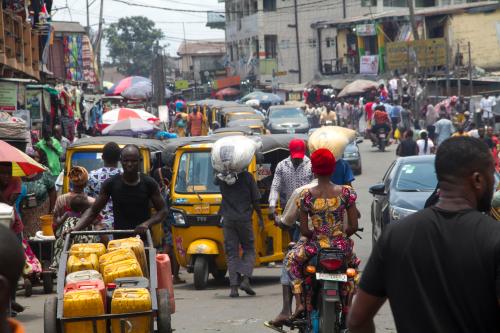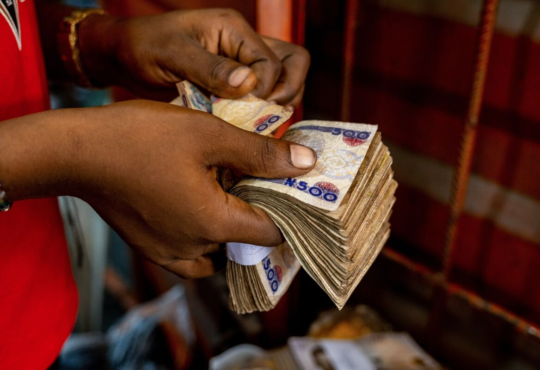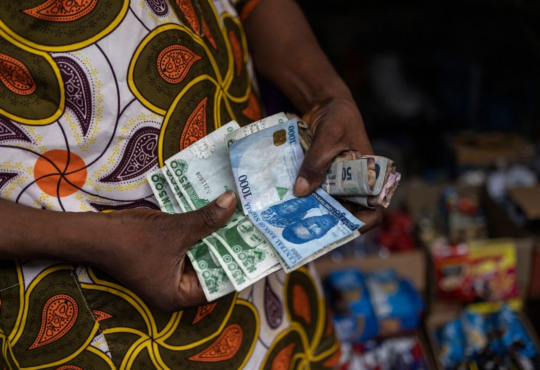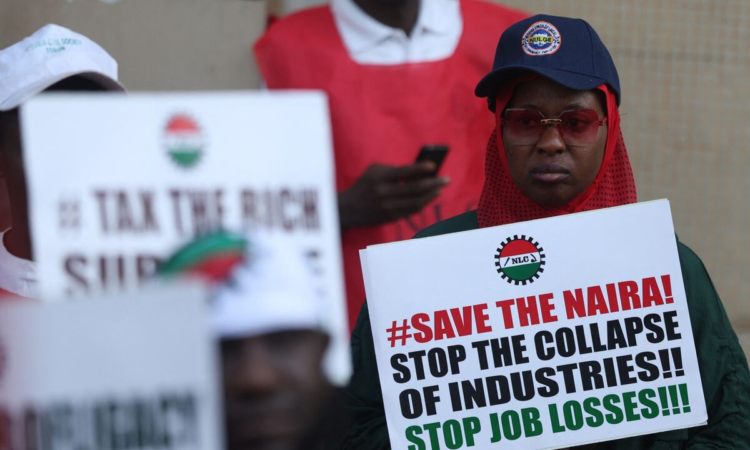
Connecting decision makers to a dynamic network of information, people and ideas, Bloomberg quickly and accurately delivers business and financial information, news and insight around the world
Americas+1 212 318 2000
EMEA+44 20 7330 7500
Asia Pacific+65 6212 1000
Connecting decision makers to a dynamic network of information, people and ideas, Bloomberg quickly and accurately delivers business and financial information, news and insight around the world
Americas+1 212 318 2000
EMEA+44 20 7330 7500
Asia Pacific+65 6212 1000
The only way to stabilize declining African currencies is through free floats and aggressively promoting exports.
A protest in Abuja on February 27, 2024.
On Tuesday, Nigeria’s central bank announced a supersized 400-basis-point rate hike in the fight against inflation and its depreciating currency. Hard to say if this move will stop the naira’s depreciation. Since January 2022, it has declined by 74% against the US dollar. And Nigeria is not alone. Other African countries have had a rough go over the past two years. The Ghanaian cedi, Kenyan shilling and South African rand are all down over the same period.
Africa’s rapidly depreciating currencies are eroding households’ savings, increasing costs for businesses and deterring long-term foreign investment at a time when the region’s economies are seriously struggling. For policymakers, the only sustainable interventions ought to be aggressive export promotion and free floats to let markets determine currency price levels.


